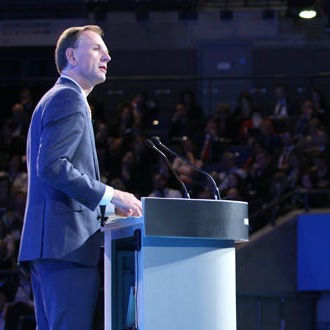NHS chief calls for ‘step-change’ in GP dementia diagnosis

The head of the NHS in England has backed calls for GPs to raise dementia diagnosis rates, urging GPs not to delay diagnosis because of a false perception ‘nothing can be done’.
NHS England chief executive Simon Stevens said there needs to be a ‘step change’ in diagnosis in order to meet the Government’s objective of ensuring two-thirds of people with dementia have a formal diagnosis by next year.
Mr Stevens’ comments were timed to coincide with publication of a new ‘dementia toolkit’ aimed at ‘demystifying’ the condition for GPs.
He said: ‘We are looking at making a step change in improving the proportion of people who get a diagnosis. We are looking at going from under half of people currently to two thirds of people with dementia getting a diagnosis by 2015.
‘Today we have published a Dementia Toolkit for GPs in which we say that there are compelling arguments against delaying diagnosis. It is increasingly important that we diagnose people with dementia.’
The toolkit claims ‘most’ GPs have patients ‘dying of “undiagnosed” dementia’, which it says makes it harder to plan their care. It says GPs concerned about overwhelming assessment services and the uncertain benefits to patients of making the diagnosis are ‘out of the loop with regard to dementia care’.
GPs are advised prescribing drugs for dementia is ‘straightforward’ and ‘well within their capabilities’, and that they have an important role in managing delirium and minimising the use of anticholinergics.
The announcement was made at a conference held by the Alzheimer’s Society, which earlier this week called on the Government to raise the target diagnosis rate even further, from two-thirds to three-quarters of people having a formal diagnosis.
The Society’s work on dementia prevalence and diagnosis was influential in Government policy leading to the current dementia case-finding DES, widely opposed by leading GPs.
However, GP experts this week questioned the rationale for the continued emphasis on raising diagnosis rates, while the Society itself acknowledged some patients are facing waits as long as nine months for memory clinic appointments.
A Department of Health spokesperson told Pulse the Government was concentrating on the commitments already made through the Prime Minister’s dementia challenge.
Speaking at the conference, health secretary Jeremy Hunt said: ‘We are now doing more to improve dementia care than ever before by doubling research spending in recent years and giving thousands of NHS and social care staff specialist training to support people with dementia. We are also working with the Alzheimer’s Society and Public Health England to tackle stigma through the Dementia Friends programme.
‘I am absolutely committed to improving care and support now and in the years to come.’

Visit Pulse Reference for details on 140 symptoms, including easily searchable symptoms and categories, offering you a free platform to check symptoms and receive potential diagnoses during consultations.









